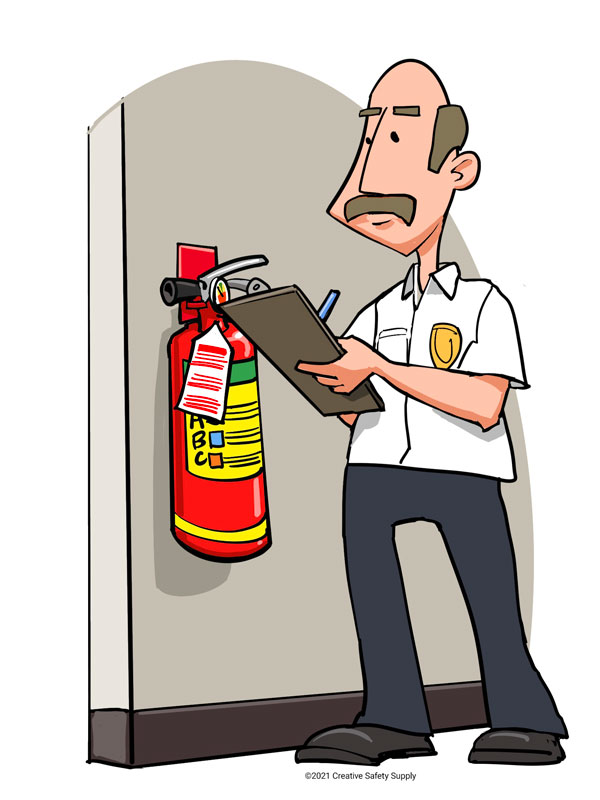For every business in Sydney Fire protection is not only a legal requirement but a vital part of keeping employees customers, property, and even the employees safe. Fires can result in devastating loss of money in just a few minutes, but many of these risks could be mitigated or avoided with the proper security measures implemented. Inspections for fires, as well as regular examination of electrical systems as well as complying with CFSP standards all work to ensure a secure environment.

Why fire inspections are the foundation of safety
Fire Inspections are the first line of defense against potential hazards. These inspections confirm that the fire protection system installed in the building is up-to-date and functioning. In Sydney businesses are required to conduct inspections at least every six months, or every year, according to the type of building and local regulations. An inspection often covers everything from fire alarm panels and sprinkler systems, to smoke alarms, hydrants and extinguishers, emergency lighting and more.
What makes inspections crucial is their ability to spot concealed issues before they turn dangerous. It might not seem like a huge issue however a minor issue in a fire hydrant or smoke alarms that are not working, could result in fatality during an emergency. Businesses that regularly check their fire hydrants are meeting the legal requirements, while safeguarding themselves from unforeseen disasters.
The hidden electrical risk can be eliminated by testing and the use of tags
Electrical systems are a major cause of fires in the workplace. Testing and tagging is therefore an important part of an action plan for ensuring the safety of fire. This involves checking electrical appliances for safety, to ensure they’re reliable, safe, and secure. Following that the tag is visible fixed to the equipment, indicating that it has passed the test. For many businesses it’s more than a routine requirement it’s a way to protect against risks that often go by unnoticed.
If unchecked outdated wiring, faulty appliances, or worn out cables can become fire hazards. Through regular testing and tagging, companies reduce the possibility of electrical issues which could lead to fire outbreaks. Additionally, it helps employees feel confident that their working environment is safe, which builds confidence and trust within the workplace. In conjunction with fire inspections and testing, this extensive safety program reduces the risk from multiple angles.
The purpose of CFSP is certification and compliance.
In New South Wales, only an Competent Fire Safety Practitioner (CFSP) is able to certify and sign important documents for fire safety, like Annual Fire Safety Statements. The introduction of CFSP accreditation has raised the standard of fire safety by ensuring that only experts with qualifications assess and verify security measures. For those who own businesses, having a CFSP means that inspections and reports are not just routine paperwork but reliable evaluations carried out by experts.
The work of a CFSP extends beyond the process of checking boxes. They offer detailed reports and ensure compliance to regulations. Without CFSP certification, companies risk fines, legal issues and even shutdowns if fire protection measures are found to be inadequate. By partnering with professionals accredited in fire safety, you can make sure that your fire protection systems are kept in good order. Also, you’ll be able meet your legal requirements without having to put yourself under anxiety.
Fire Safety is a Continuous Commitment
Safety in the event of fire is not a one-time obligation but an ongoing obligation for every business owner. Regular inspections and testing of electrical equipment with proper certification by CFSP, create a safety cycle that doesn’t end. Beyond compliance with the law and ongoing monitoring, this approach helps to create the culture of safety in the workplace. Employees are able to feel secure knowing that evacuation plans have been formulated and smoke detectors are functioning, emergency lighting has been tested, and the fire suppression system is ready to use.
The idea of implementing fire safety as an ongoing process instead of an annual checkbox not only minimizes risk, but also helps strengthen a business’s reputation. In an environment that prioritizes security, clients and customers are more secure. In the long term, investing in proactive fire protection saves cash by avoiding costly damage such as fines, legal disputes, while protecting the lives of all that enters the building.
Conclusion
Sydney’s fire safety program is an elaborate process that involves inspections and testing, tagging, and professional certification from a CFSP. Each element is crucial in helping businesses adhere to laws, but most importantly in securing the lives of people and property. Safety is an integral aspect of business operations and is not a secondary consideration. Businesses can meet their legal requirements and create a more resilient and safer setting in the future, if safety is an integral aspect of their daily activities.